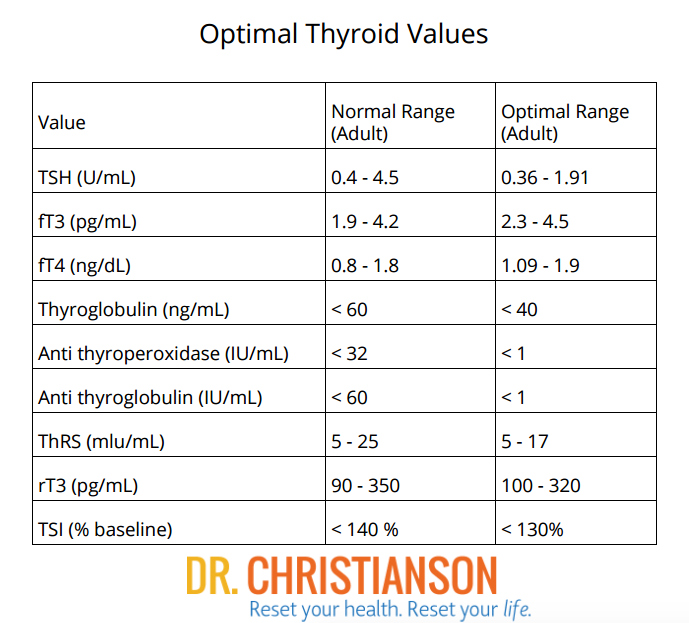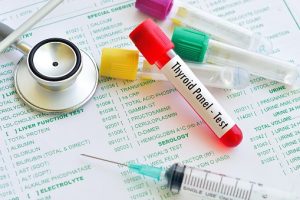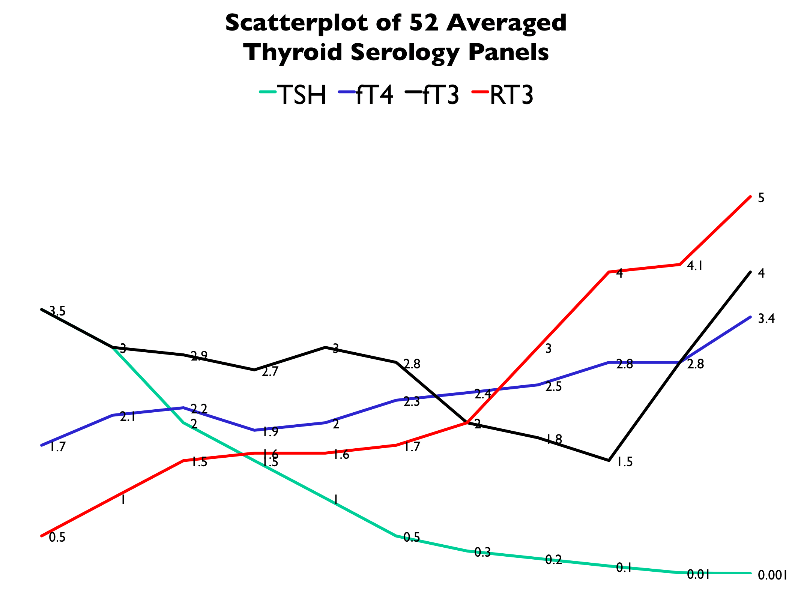Understanding Your Scores
Let’s get a quick refresher on what your scores mean when you have a full panel of tests done.
- Your TSH is backward. The higher it is, the more your brain is asking your thyroid to work.
- When it is below range, you have too much thyroid hormone. The last part is true even if you’re on natural thyroid or Cytomel. Yes, even if your T4 and T3 levels are normal.
T4 and T3 are similar but need more nuance. When you have way too much thyroid hormone, T4 and t3 are high. When you have no thyroid hormone, they are low.
But if you are too high or too low by a mild or moderate degree, T4 and T3 usually don’t reflect it. It often just shows up in the TSH at first.
In fact, TSH is 50-fold more sensitive to mild and early changes.
TSH – Normal Ranges
You may have heard that the normal ranges for thyroid tests do not always reflect optimal function. This point applies mostly to the TSH for people who are taking thyroid medications.
Many who are in the “normal” range, but on the high side, can have hypothyroid symptoms. It actually confuses a lot of what we think of as “normal,” because it is actually not healthy.
People who are rightfully on thyroid medication sometimes only feel normal when their TSH levels are on the low side of normal. This might require a higher dose of medication or a different type of medication.
This does not mean that everyone whose TSH is high-normal needs thyroid medication. Nor does it mean that everyone on thyroid medication MUST have their TSH on the low side.
T4 and T4
T4 and T3 levels can fluctuate greatly, often for reasons besides the wrong amount of thyroid hormone.
Things that can change them include:
- Illness
- Fasting
- Low carb diets
- Adrenal dysfunction
- Inflammation
Too often doctors assume that a low level of T3 means that more T3 is needed. In many cases, it means the body prefers less T3.
The argument that everyone must have T3 or T4 on the high side of normal does not hold water. People with high T3 have higher rates of bone loss, breast cancer, and diabetes. It does not help someone’s health to artificially create high T3 levels.
Taking those points in mind, the following chart summarizes ideal levels for all commonly available thyroid blood tests.















